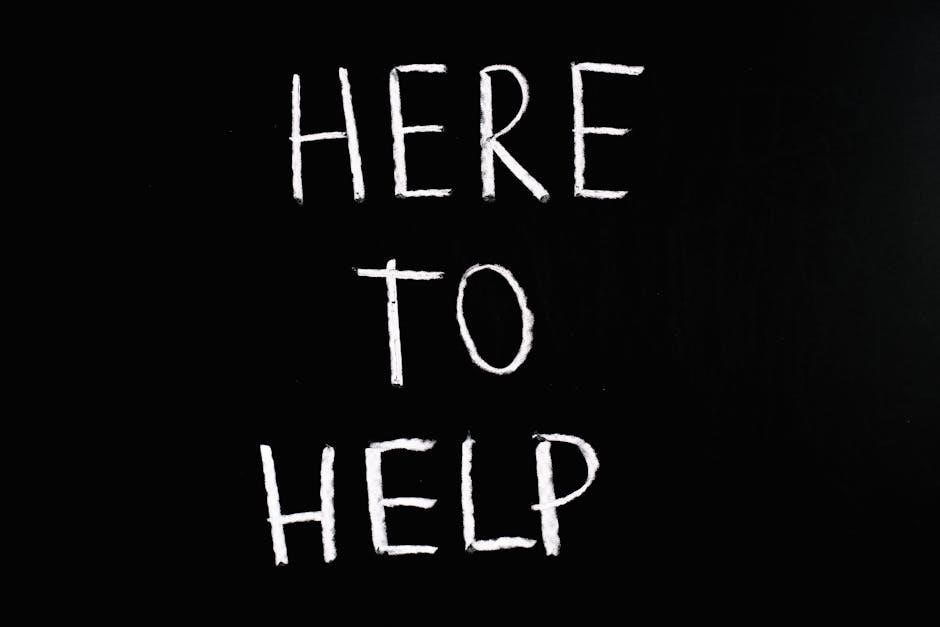Moral improvement via instruction is a process where individuals learn and develop morally through guidance and teaching, using various methods and approaches to enhance their moral character and behavior effectively always.
Definition of Moral Improvement
Moral improvement refers to the process of enhancing one’s moral character and behavior through instruction and guidance. This involves acquiring knowledge and understanding of moral principles and values, and developing the ability to apply them in real-life situations. Moral improvement is about becoming a better person by learning to distinguish right from wrong and making informed decisions. It encompasses various aspects, including moral awareness, moral reasoning, and moral action. Through instruction, individuals can learn to analyze complex moral issues, evaluate different perspectives, and develop their own moral framework. Effective moral instruction can lead to positive changes in behavior and character, enabling individuals to become more compassionate, empathetic, and responsible members of society, which is essential for personal and social growth and development, and for creating a more just and equitable world. Moral improvement is a lifelong process.
Importance of Moral Instruction
Moral instruction plays a vital role in shaping individuals’ moral character and behavior, enabling them to make informed decisions and develop a sense of responsibility. Through moral instruction, individuals can acquire the knowledge and skills necessary to navigate complex moral issues and develop their own moral framework. Effective moral instruction can lead to positive changes in behavior and character, promoting empathy, compassion, and respect for others. It also helps individuals to develop critical thinking and problem-solving skills, essential for making informed decisions and addressing moral dilemmas. Moreover, moral instruction can foster a sense of community and social cohesion, promoting a more just and equitable society. By providing individuals with the tools and guidance they need to make moral decisions, moral instruction can have a lasting impact on their lives and the lives of those around them, leading to personal and social growth.

Moral Education and Bioenhancement
Moral education and bioenhancement intersect to improve human morality and behavior effectively through instruction and technology always.
Voluntary Pursuit of Moral Bioenhancement

The voluntary pursuit of moral bioenhancement is a concept that has gained attention in recent years, with many authors defending its potential to improve human morality. Through instruction and education, individuals can learn about the benefits and risks of moral bioenhancement, and make informed decisions about whether to pursue it. This approach emphasizes the importance of personal autonomy and choice in moral development, allowing individuals to take an active role in improving their own moral character. By providing access to information and resources, individuals can make voluntary choices about their own moral bioenhancement, and work towards becoming morally improved through instruction and self-directed learning, ultimately leading to a more morally aware and responsible society. Moral improvement via instruction is a key aspect of this approach.
Technologies for Moral Improvement
Various technologies can be utilized to facilitate moral improvement through instruction, including online platforms and educational software. These tools can provide interactive and engaging learning experiences, allowing individuals to explore complex moral issues and develop their critical thinking skills. Instructional technologies can also offer personalized feedback and assessment, enabling individuals to track their progress and identify areas for improvement. Additionally, technologies such as virtual reality and artificial intelligence can be used to create immersive and realistic scenarios, allowing individuals to practice and apply moral principles in a safe and controlled environment. By leveraging these technologies, individuals can access high-quality moral instruction and work towards becoming morally improved, with the ultimate goal of developing a stronger sense of moral character and responsibility. Effective use of technology can enhance moral instruction and improvement.

Methods for Moral Improvement
Individuals can improve morally through various instructional methods and activities always effectively online.
Journaling and Reflective Activities
Journaling is a valuable tool for moral improvement, allowing individuals to reflect on their thoughts and actions, and identify areas for personal growth and development. Through reflective activities, individuals can gain a deeper understanding of their own moral values and principles, and develop a stronger sense of self-awareness. By writing down their thoughts and feelings, individuals can process and analyze their experiences, and develop a greater understanding of the complexities of moral issues. This can help individuals to develop their critical thinking skills, and make more informed decisions. Additionally, journaling can help individuals to develop a greater sense of empathy and compassion, and to become more morally sensitive and aware. Overall, journaling and reflective activities can be a powerful way to promote moral improvement and development. This approach can be used in various settings, including educational institutions;
Creating Art and Argumentation Skills
Creating art can be a powerful tool for moral instruction, allowing individuals to express their thoughts and feelings in a creative and meaningful way. Through art, individuals can explore complex moral issues and develop a deeper understanding of different perspectives and values. Additionally, developing argumentation skills can help individuals to articulate and defend their moral beliefs, and to engage in respectful and constructive dialogue with others. By creating art and developing argumentation skills, individuals can become more effective communicators and critical thinkers, and can develop a stronger sense of moral awareness and sensitivity. This can help individuals to navigate complex moral dilemmas and to make more informed decisions. Art and argumentation skills can be developed through various instructional methods and activities, including classroom discussions and debates, and creative writing and art projects.

Research and Practice in Moral Education
Researchers analyze and practice moral education methods to improve moral instruction effectively always using various techniques and tools online every day.
Cluster Analysis and Research Status
Cluster analysis is used to reveal core issues in moral education, providing a comprehensive understanding of the research status in the field.
Researchers utilize this method to identify patterns and trends, and to summarize research results, offering theoretical and practical support for future studies.
By examining the current state of moral education, researchers can identify areas for improvement and develop effective strategies for instruction.
The use of cluster analysis enables researchers to categorize and analyze large datasets, providing valuable insights into the complexities of moral education.
This approach helps to inform the development of moral instruction methods, ensuring that they are evidence-based and effective in promoting moral improvement.
Through cluster analysis, researchers can gain a deeper understanding of the factors that influence moral education, and develop targeted interventions to support moral development.
Evolutionary and Keyword-Burst Analyses
Evolutionary and keyword-burst analyses are used to examine the development of moral education over time, identifying key trends and patterns.
These methods involve analyzing large datasets to identify bursts of activity and emerging topics, providing insights into the evolving landscape of moral education.
By examining keyword bursts, researchers can identify areas of rapid growth and development, and track the emergence of new themes and concepts.
This approach enables researchers to stay up-to-date with the latest developments in moral education, and to identify areas for further research and instruction.
The use of evolutionary and keyword-burst analyses helps to inform the development of effective moral instruction methods, ensuring that they are responsive to changing needs and contexts.
Through these analyses, researchers can gain a deeper understanding of the dynamic nature of moral education, and develop targeted interventions to support moral improvement.
Moral improvement via instruction is a valuable process that enhances character and behavior effectively always using guidance and teaching methods online every day.
Moral improvement via instruction is a process that enhances character and behavior effectively, using guidance and teaching methods online every day. This process involves learning and developing morally through various approaches, including journaling and reflective activities. By encouraging students to keep a journal, they can reflect on their own moral choices and gain self-awareness. Creating art can also be a powerful tool for moral instruction, allowing individuals to express their thoughts and feelings in a creative way. Through these methods, individuals can develop their argumentation skills and understand the complexities of moral issues, ultimately leading to moral improvement and a stronger sense of what is right and wrong. Moral improvement is a valuable and ongoing process that can have a positive impact on individuals and society as a whole, always.
Future Directions for Moral Education
Future directions for moral education involve developing innovative approaches to instruction, utilizing technologies and methods that enhance moral improvement. Researchers and educators can explore new ways to integrate moral instruction into existing curricula, making it more accessible and effective. By examining the impact of moral education on individuals and society, future studies can provide valuable insights into the most effective methods for promoting moral improvement. Additionally, the development of online platforms and resources can expand access to moral education, allowing more people to benefit from instruction and guidance. As moral education continues to evolve, it is likely that new and innovative approaches will emerge, leading to a brighter future for moral improvement and instruction, with positive outcomes for individuals and society, and a greater understanding of moral values and principles. Moral education will continue to play a vital role;
